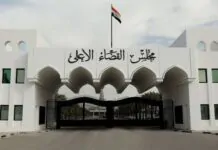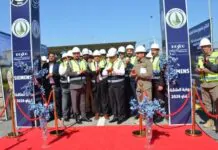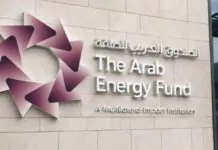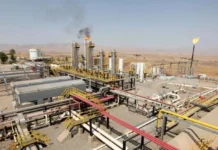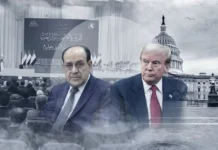Tishwash: Central Bank: Developing a “global” plan to reform Iraqi banks in agreement with Oliver Wyman
The Central Bank of Iraq identified several key points for the banking reform plan agreed upon with the global company “Oliver Wyman”, noting that a turning point had been reached with the opening of a branch of the “Arab Bank” in Baghdad, so that banks in Iraq would be no less than the banks of the Emirates and Saudi Arabia.
Central Bank spokesman Alaa Al-Fahd said, “The plan is the most important strategy undertaken by the Central Bank to develop the financial and banking sector in Iraq in cooperation with the global company (Oliver Wyman),” noting that “the plan is represented by digital and electronic transformation, diversifying the base of financial inclusion and moving away from paper transactions, so that local banks will be at a level comparable to global and regional banks.”
Al-Fahd added that “this plan needs time to be implemented despite the existence of very large challenges that it may face,” expecting “the banks’ agreement to enter into the reform plan to be a successful first step towards a path that extends from 3 to 5 years . “
He explained that “the turning point is the opening of a branch of (Arab Bank) in Baghdad, which is evidence of competition in the local, Arab, regional and international banking sector, so that banks in Iraq are no less than the banks of the Emirates and the Kingdom of Saudi Arabia, and its application in cooperation with the global company makes these banks operate at a global level of financial services, improve their quality, develop human resources and apply technological transactions and cybersecurity within a comprehensive plan for technological, financial and banking reform and development in Iraq link
************
Tishwash: Bank of Baghdad forms its new board of directors, becoming the first Iraqi bank to implement the Central Bank’s new governance framework.
Bank of Baghdad, one of Iraq’s leading banks, announced the formation of its new Board of Directors during its ninth extraordinary general assembly meeting held today. This move is part of the ongoing reform process initiated by the bank in accordance with the directives of the Central Bank of Iraq within its banking reform program.
This new board represents a significant step, making Bank of Baghdad the first bank in Iraq to implement the new corporate governance framework approved by the Central Bank of Iraq. This underscores the bank’s commitment to the principles of transparency and corporate responsibility, and its adoption of global best practices in banking management.
During the meeting, the following members were elected to replace those who had resigned: Ms. Tamara Hussein Al-Shadidi, Mr. Khalid Sharif Al-Hazza, Mr. Nidal Faiq Al-Qabaj, and Mr. Ahmed Tahseen Al-Ma’la, the Managing Director. The following alternate members were also elected: Yazan Bader Kurdi, Salah Mohammed Salim, Baidaa Salem Suleiman, Inas Abdulrahman Al-Qaisi, Fadi Mohammed Ayad, Zuhdi Bahjat Al-Jiyousi, Dr. Taha Jaafar, Ghassan Ahmed Salim, and Niran Sabri Ishaq.
The new board of directors held its first meeting, electing Abdulkarim Alawi Al-Kabariti as chairman and Dara Nour El-Din as vice chairman.
Ahmed Tahseen Al-Ma’la, Managing Director of Bank of Baghdad, stated that the new board represents a strategic step towards strengthening corporate governance practices and solidifying the principle of separation between ownership and executive management. He expressed his pride that Bank of Baghdad is the first Iraqi bank to implement the Central Bank of Iraq’s new framework.
He added that this measure aligns with the Central Bank of Iraq’s regulations for restructuring the board to keep pace with developments, adhere to international and local standards, and ensure the provision of high-quality banking services that meet customer expectations and support sustainable growth.
He affirmed that the bank will continue to maintain its financial stability and operational robustness while moving forward with its ambitious strategy for sustainable growth and the provision of innovative banking solutions. link
************
Tishwash: The Sudanese president declares it openly: I want a second term.
Prime Minister Mohammed Shia al-Sudani confirmed on Monday that the disarmament of armed groups is linked to the withdrawal of international coalition forces, which will take place next September, and stressed his desire to obtain a second term.
Al-Sudani told Reuters that “Iraq has pledged to put all weapons under state control, but that will not work as long as there is a US-led coalition in the country, which some Iraqi factions consider an occupying force.”
He added that “there is still a plan for the international coalition against ISIS to withdraw from Iraq by September 2026, because the threat of armed Islamist groups has declined significantly.”
He said: “ISIS does not exist. Security and stability exist… So give me an excuse for the existence of 86 countries (in the coalition),” referring to the number of countries that have participated in the coalition since its formation in 2014.
He added: “At that point, there will certainly be a clear program to end any weapons outside the state institutions. This is everyone’s demand,” noting “the possibility of factions joining the official security forces or entering the political arena by laying down their weapons.”
He pointed out that “no party can drag Iraq into war.”
When asked about the increasing international pressure on non-state armed groups in the region, al-Sudani said: “There is plenty of time; the situation here is different from Lebanon.”
He continued: “Iraq is clear in its positions to maintain security and stability, and that state institutions are the decision-makers in war and peace, and that no party can drag Iraq into war or conflict.”
Al-Sudani said: “There is a clear, intensive and qualitative entry of American companies into Iraq,” including the largest agreement ever with General Electric to generate 24,000 megawatts of power, which is equivalent to the country’s current total production capacity.
Al-Sudani stressed that the agreement with the American company Excelerate for liquefied natural gas to provide liquefied natural gas helped Iraq cope with frequent power outages.
Al-Sudani praised the preliminary agreement recently signed with ExxonMobil, saying that “the advantage of this agreement is that Iraq, for the first time, is agreeing with a global company on the development of oil fields, along with an export system.”
She pointed out that “American and European companies have expressed interest in a plan to build a permanent platform for importing and exporting gas off the coast of the Grand Faw Port, which will be the first project there,” indicating that “the government has set a deadline of the end of 2027 to stop gas flaring completely and achieve self-sufficiency in it, and stop importing gas from Iran.”
He said: “We burn gas worth between four and five billion dollars annually, and we import gas worth 4 billion dollars annually. These are wrong policies, and our government is working to find solutions to these problems.”
Regarding the elections, Al-Sudani explained: “We expect a big win and we want to continue on this path,” adding that he desires a second term.
He expressed his belief that this year’s elections will see a higher turnout than the parliamentary participation rate of about 40% last year, which had decreased from about 80% two decades ago.
Al-Sudani listed the number of unfinished projects he inherited from previous governments – 2,582 projects, according to him – and indicated that he “spent a small part of their initial cost to complete them.”
He concluded by saying: “I am not worried about Iraq’s financial and economic situation. Iraq is a country rich in resources, but my concerns are about the delay in implementing reforms.” link


